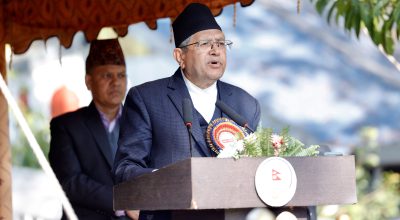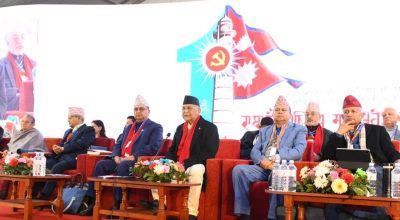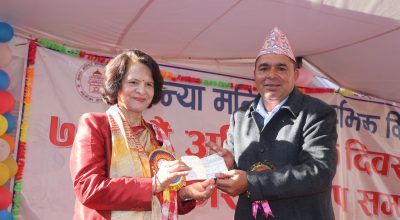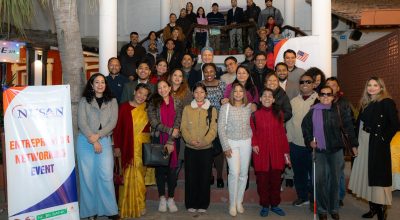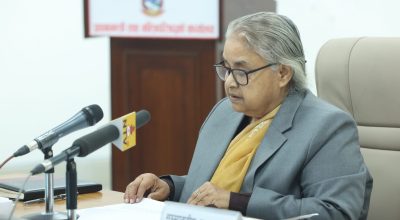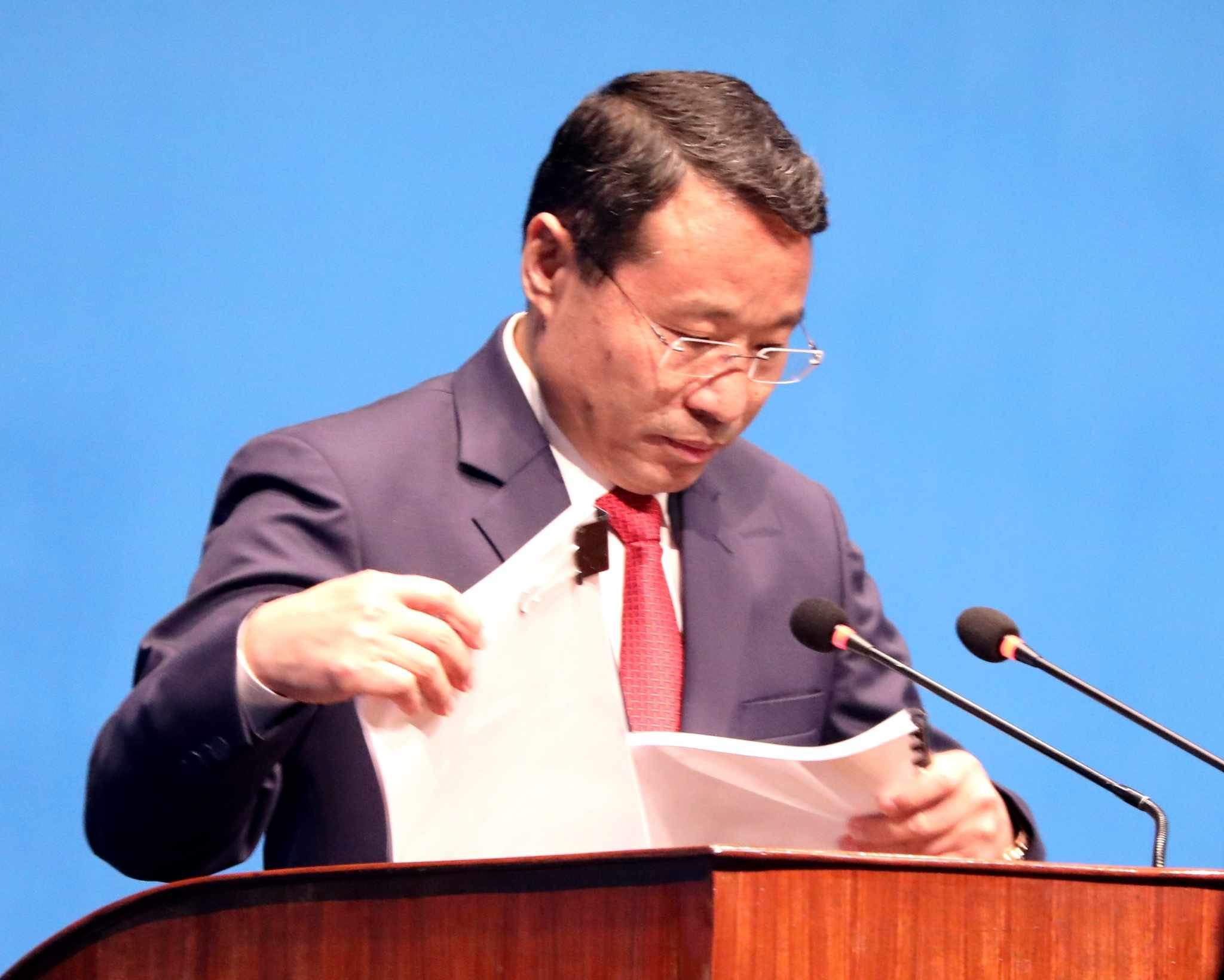
Kathmandu, May 30: The Open Budget Survey, 2023 has revealed that Nepal has improved in budget transparency score (50) which is higher than global average score (45) out of 100.
Nepal scored 31 in public participation in budgetary process which is higher than the average global score 15 out of 100.
Likewise, the country scored 36 in legislature oversight, lower than global average whereas Supreme Audit institute (SAI) oversight is 67 which exceeds global average.
However, Nepal’s budget transparency score is short of score (61) that is considered minimum threshold to foster an informed public debate on fiscal policies and practices, the OBS summary mentions.
With this, Nepal secured 59th position among 125 countries surveyed in 2023 while it was 77th in 2021 according to the International Budget Partnership’s (IBP) latest Open Budget Survey.
The overall budget transparency results indicate improvement of public access to budget information in Nepal.
Nepal has improved the availability of budget information with publication of key budget documents, mainly Year-End Report in time which however was published late in the previous cycle of open budget survey in 2021, reads the press release by Freedom Forum, an organization which has been conducting OBS in Nepal since 2009.
Despite arduous advocacy efforts from CSOs and media, Nepal has not produced and made publicly available the pre-budget statement (PBS) and Citizen Budget, said Freedom Forum’s Executive Chief and budget researcher Taranath Dahal.
The OBS 2023 survey tells snapshot of Nepal’s current practices related to budget disclosure, opportunities for public engagement in the budget cycle, and effective checks and balances.
Public participation is assessed based on formal opportunities for civic organizations and individuals to engage and provide input throughout the budget process. Strengths of oversight institutions on budget are measured based on the role played by legislatures and supreme audit institutions (SAIs).
Recommendations for budget openness reforms
Nepal government could quickly improve the situation by including in the Executive’s Budget Proposal data on the financial position of the government, data on the macroeconomic forecast and data on estimates of expenditure arrears; publish a glossary of budget terms along with Executive Budget Proposal to improve budget literacy; improve the comprehensiveness of the Enacted Budget as well as other budget documents by publishing disaggregated and machine readable data.
The OBS has recommended the government to include in the In-Year Reports (monthly and quarterly Economic Bulletins), actual expenditures for administrative classification, functional classification, and individual programs, including information of the budget execution at the sub-national level (provinces and municipalities and include in the Year-End Report comparisons between planned revenues and actual outcomes, comparisons between planned nonfinancial outcomes and actual outcomes and comparisons between the original macroeconomic forecast and actual outcomes.
Likewise, Nepal needs to work on improving the public participation in various budget process by continuing and sustaining the practice of pre-budget consultations with stakeholders, including at the provincial level, and submit its report to the Parliament. “Additionally, the Ministry of Finance and the Revenue Advisory Committee should have a practice to inform the citizens on which recommendations and inputs received were used to improve budget policies”, the press release states, adding the OBS has recommended to actively engage with vulnerable and underrepresented communities, directly or through civil society organizations representing them.
Among other recommendations on people’s participation include implementation of the actions of the National Strategy for Citizen Engagement in Public Financial Management, which was published by the PEFA secretariat and after extensive consultations with civil society.
Even though Supreme Audit Institute of Nepal oversight sufficient and is above global average, Nepal’s Federal Parliament provides weak oversight during the planning stage of the budget cycle the implementation as well. To improve oversight, the Executive’s Budget Proposal should be submitted to legislators at least two months before the start of the budget year; legislative committees should examine the Executive’s Budget Proposal and publish reports with their analysis online and a legislative committee should examine in-year budget implementation and publish reports with their findings online.
“In practice, ensure the legislature is consulted before the executive shifts funds specified in the Enacted Budget between administrative units or reduces spending due to revenue shortfalls during the budget year”, the OBS summary noted, adding a legislative committee should examine the Audit Report and publish a report with their findings online.
Global budget transparency
Global budget transparency has increased by 24% since 2008, but it is still well below what is considered sufficient (a score at or above 61 out of 100) to allow for meaningful public engagement.
Legislative oversight is also well below sufficient levels, and public participation is rare.
Average audit oversight scores are sufficient, but challenges remain to ensure governments follow up on audit reports.
The COVID-19 pandemic provided an excuse for many executive governments to sidestep the legislature in its budget practices, and legislative oversight practices have not bounced back since
“In these turbulent times, governments can restore public trust in their ability to deliver by opening up the budget process to meaningful engagement. Engaging the public is a winning proposition.
As the pages of this report illustrate, despite slow progress in the survey’s global averages for budget transparency and public participation, there are several examples of countries that are benefiting from more transparent and inclusive budget practices” said Ana Patricia Muñoz, Executive Director of IBP. She Further added that an open budget process is critical to supporting the ability of democratic governments to deliver tangible gains to their people.
The Open Budget Survey 2023 assessed 125 countries, which are home to 95% of the world’s population and include budgets totaling more than $33.5 trillion in spending in Fiscal Year 2022.
This locally-led process was conducted with in-country researchers, peer reviewers, and government reviewers who completed 30,000 indicators across all surveyed countries, assessing 672 publicly available budget documents and 299 participation mechanisms.
This latest round comes at a turbulent time of unprecedented challenges. Rising debt, inflation, conflicts, closing civic space and climate change have led to serious setbacks for many. RSS #Nepal







